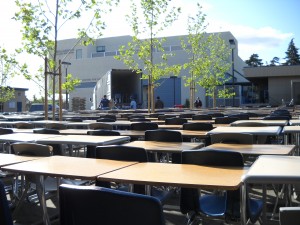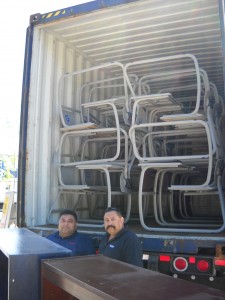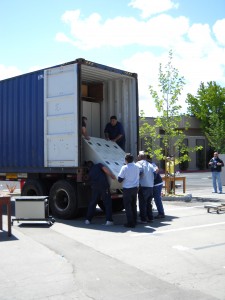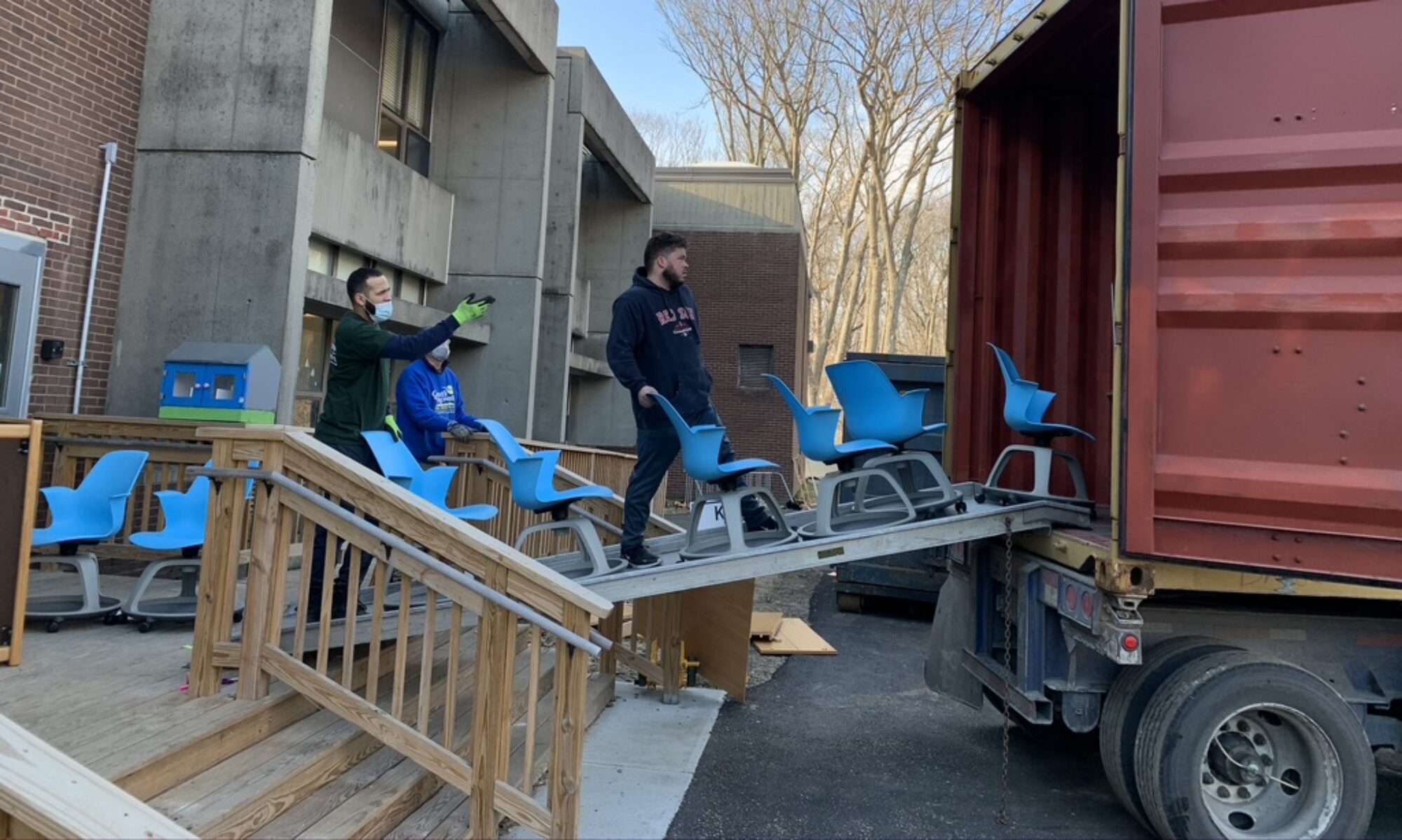
OVERVIEW
Situation: Renovating large sections of the school, and replacing most of the furnishings in affected classrooms.
Material Composition: Complete classroom furnishings. Primarily student desks, but also work and conference tables, seating, lockers, and other furnishings.
Quantity: Approximately 600 pieces; Three shipping containers.
Setting: Urban residential location; Renovation contractor removed furnishings from classrooms to school parking lot where containers were loaded.
Click here for a printable PDF of this case study.
BACKGROUND
Established in 1851, Bellarmine College Preparatory is one of the oldest Jesuit high schools in the U.S. As part of a major campus renovation in 2010, Bellarmine replaced furnishings from about a dozen classrooms, along with associated furniture from offices, lounges, and common areas.
Central to Bellarmine’s mission is to educate students of “conscience, competence, and compassion.” “Community” and “service” are constant elements in a Bellarmine education. Against this background, it was natural that Bellarmine sought avenues to reuse rather than throw away the furnishings made surplus during renovation.
SETTING
Bellarmine occupies a suburban campus in San Jose. The project was scheduled after the end of the spring semester, so there were few students, faculty, or staff on campus. This allowed the project to be managed in two steps. Bellarmine’s contractor first removed and staged the furnishings in the main campus parking lot. IRN scheduled shipping containers to arrive at the lot, and a second crew under IRN’s direction loaded and packed the staged furniture for shipment.
COMPOSITION
Student desks with integrated seat and desk surface (431); Stacking chairs (34); Other seating (19); Bookcases, metal and wood (19); Desks, teacher and administrative (8); Classroom and work tables (12); Lockers, large multi-locker units (35); Other including kitchen equipment, podiums, file cabinets, etc. (17).
IMPLEMENTATION
IRN scheduled three shipping containers to arrive on the Bellarmine campus at 7:30, 9:30, and 11:30 AM. IRN retained a crew including a supervisor and 12 laborers to load the containers from material staged in the Bellarmine parking lot. At the same time containers were being loaded, Bellarmine’s renovation contractor brought out additional material from classrooms and administrative areas, sufficient to completely pack three overseas shipping containers.
DESTINATION
Two containers of the Bellarmine furniture were shipped to Food for the Poor’s central Caribbean warehouse in Kingston, Jamaica. The majority of this furniture was placed in schools in Spanish Town, Jamaica. The remainder was distributed to other Food for the Poor relief projects and partners, also in Jamaica. The third Bellarmine container was shipped directly to a local Food for the Poor partner organization in San Salvador, El Salvador, where the furnishings were placed directly into local schools.
COST
With the exception of locker units and some other smaller items, none of the Bellarmine surplus was recyclable for its material value. Additionally, because most of the surplus consisted of student desks that do not compact well in the open top containers used for disposal, the Bellarmine surplus would have filled 12-15 such containers. At typical Bay Area prices, the cost to dispose of the Bellarmine surplus would have been approximately double the cost of reuse through IRN.


